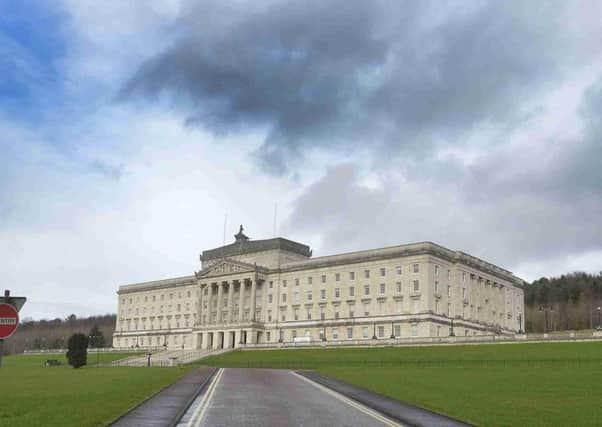Sam McBride: The once-fringe idea now moving mainstream


A few miles across the city, the DUP and Sinn Fein were in Stormont working together more closely than they had ever done before.
Despite the looming uncertainty of Brexit and continuing concerns about Stormont’s lack of delivery and aversion to transparency, Belfast looked like a beacon of at least short term stability.
Advertisement
Hide AdAdvertisement
Hide AdBut since the collapse of Stormont nine months ago, an elongated political vacuum has left politicians and their staff who are staring into the abyss of unemployment toying with once fringe concepts.
Suddenly, the constitutional pillar on which modern Northern Ireland was supposedly built is badly cracked if not yet crumbling.
That ‘constitution’ will formally be suspended if – as now seems increasingly likely – we move to direct rule in coming weeks or months.
History suggests that Westminster rule can be far longer than envisaged (the legislation which introduced direct rule in 1972 was called the Northern Ireland Temporary Provisions Act) and that to emerge from it can require a fundamental renegotiation of whatever went before.
Advertisement
Hide AdAdvertisement
Hide AdThe 1998 Belfast Agreement was a lengthy and complex compromise, entailing everything from prisoner releases to cross-border agencies and the removal of the Republic’s claim to Northern Ireland.
But at its core was a form of power-sharing (D’Hondt) which offered all but the tiniest parties at least one seat in government, bringing together unionists and former IRA commanders.
Although that mandatory right to be in government was opposed by many (among them the DUP and Alliance), they increasingly accepted it pragmatically, knowing that Sinn Féin viewed any attempt to move to a more normalised form of voluntary coalition as an attempt to exclude them from power and thus likely to precipitate a crisis. The one figure to consistently rail against that arrangement was the anti-Agreement unionist Jim Allister.
Yet in recent weeks unlikely voices have joined in what is not quite a chorus but is no longer merely a lone singer. A fortnight ago the Green Party leader, Steven Agnew – someone who politically disagrees with Mr Allister on almost everything – said that it seemed that “Sinn Féin has no intention of going back into government” and that as a consequence voluntary coalition needed to be examined.
Advertisement
Hide AdAdvertisement
Hide AdOn Thursday, the front page of the Irish News promoted a column inside by one of its senior journalists, Allison Morris, in which she argued that it was time to admit that mandatory coalition “will never work”. Coming in Northern Ireland’s dominant nationalist newspaper, that article is particularly significant (and attracted immediate criticism from Sinn Féin) because it is nationalism which has a deeply ingrained suspicion of any attempt to alter the current arrangements, seeing it as unionism attempting to get out of sharing power.
In truth, that feared return to unionist majority rule is inconceivable. Even Mr Allister accepts that there would have to be some system of weighted majority voting for key Executive proposals such as the budget, giving each side a form of veto, albeit with less power.
But a second outcome of the new dispensation would be that in any Assembly without a unionist majority – something which is currently the case and on paper ought to become increasingly possible in future due to changing demographics - the kingmakers would be those in the middle: the Alliance Party, the Greens and any independents.
What has been the reality of Belfast City Council for years (Alliance effectively decides the outcome of any issue on which unionism and nationalism is split) would be translated to Stormont.
Advertisement
Hide AdAdvertisement
Hide AdAnd such a king-making position, as the DUP knows from Westminster, imparts power disproportionate to one’s mandate. If voluntary coalition does come, the real beneficiaries of that may not be the DUP – and the real losers will not necessarily be Sinn Féin.